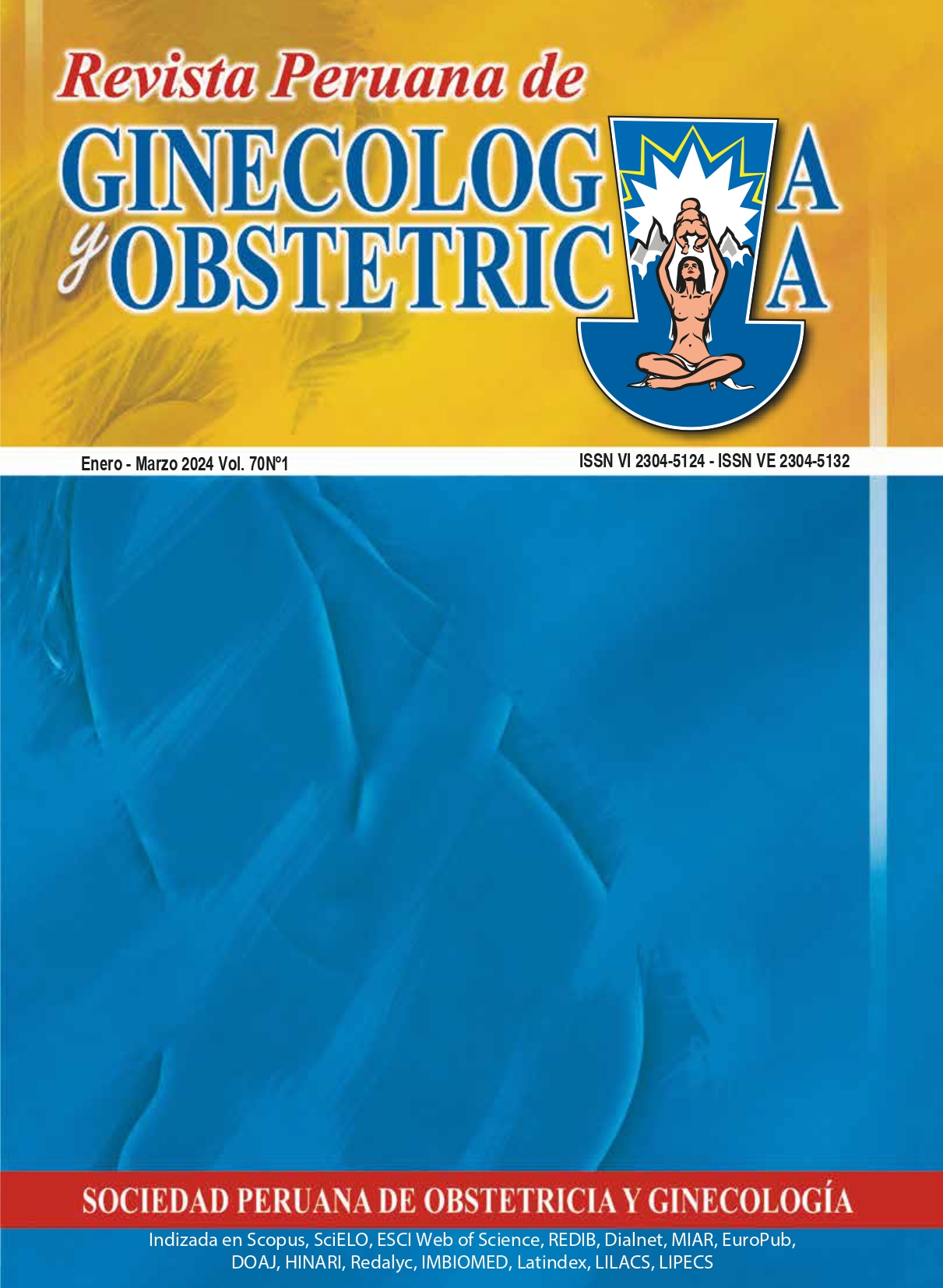Intracardiac fetal therapy: report of the first successful fetal cardiac intervention in Peru, with postnatal correlation at birth and 18 months of life
DOI:
https://doi.org/10.31403/rpgo.v70i2607Keywords:
Anemia, fetal, Rh isoimmunization, Fetal heart intervention, Blood transfusion, intracardiacAbstract
Fetal anemia is a cause of perinatal morbidity and mortality. Although it has different
etiologies and despite the introduction of RhD immunoglobulin prophylaxis,
alloimmunization remains one of its main causes. These pregnancies are initially
identified by measuring in the fetus the middle cerebral artery peak systolic velocity
(MCA-PSV) and moderate to severe anemia should be suspected when the MCA-PSV
is ≥1.50 multiples of the median. In these cases, the actual hematocrit is determined
by obtaining fetal blood. Intervention with a fetal hemoglobin no lower than 7g/
dL results in a better fetal outcome compared to waiting until the development of
severe anemia <5g/dL or hydrops. Intravascular fetal transfusion is preferable to
intraperitoneal transfusion due to higher survival rates, particularly of hydropic
fetuses. The umbilical vein is the preferred vascular site due to ease of access and
greater safety compared to other vascular sites. Direct cardiac puncture is rarely
performed because of an increased risk of serious complications, including fetal
death. In the present article we present the first case reported in our country of
intracardiac transfusion in a fetus with severe anemia due to Rh isoimmunization,
which had an exhaustive and difficult management, but with an excellent subsequent
fetal, neonatal and postnatal evolution.
Downloads
Downloads
Published
How to Cite
Issue
Section
License
Copyright (c) 2024 Enrique Gil Guevara, Guillermo Diez Chang, Braowell Miranda Frisancho, Ina Pérez, Carlos Bazán, Jairo Muñoz Acosta, Oswaldo Gonzales Carrillo

This work is licensed under a Creative Commons Attribution 4.0 International License.
Esta revista provee acceso libre inmediato a su contenido bajo el principio de que hacer disponible gratuitamente la investigación al publico, lo cual fomenta un mayor intercambio de conocimiento global.















